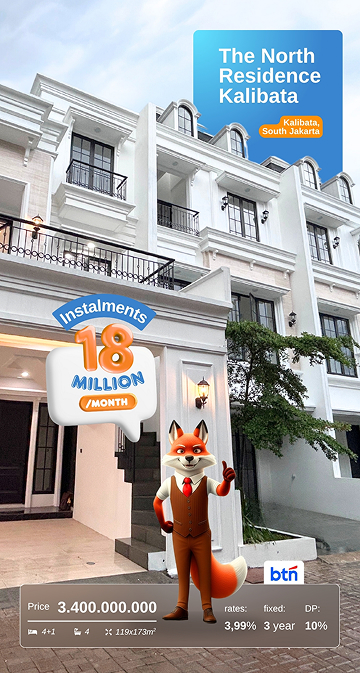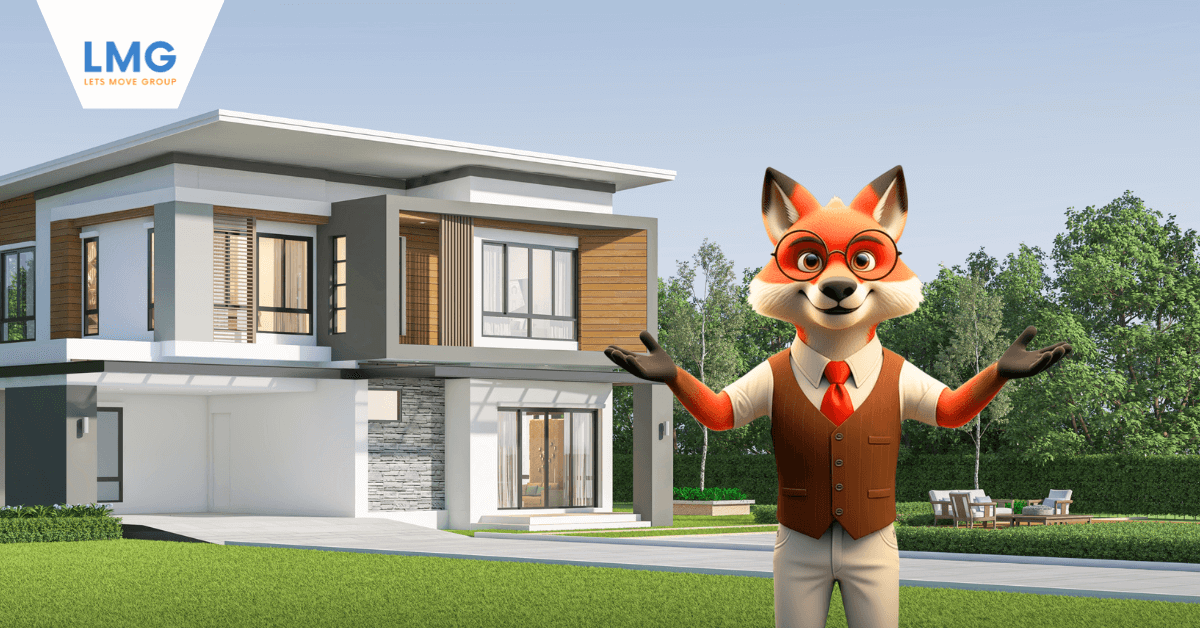Owning a home does not necessarily require a large amount of capital. For this reason, many individuals turn to Mortgage, or KPR (Home Ownership Credit), as a means of financing. In Indonesia, KPR is available through two main channels: conventional banks and Islamic banks.
Amid rising benchmark interest rates, Islamic home financing (KPR Sharia) has emerged as a stable alternative. Unlike conventional mortgages, which typically use floating interest rates that can lead to increasing monthly repayments, Islamic mortgages offer greater payment stability.
This stability is due to the use of murabahah contracts in Sharia financing, where monthly instalments remain fixed for the duration of the loan. In contrast, conventional banks often offer low fixed rates for the first one to three years before reverting to rates that track benchmark interest fluctuations.
Curious about how Islamic mortgages work, including their payment structures, applicable contracts, and eligibility for expatriates? Here is a comprehensive explanation.
What Is a Sharia KPR?
A Sharia Mortgage (Home Ownership Credit) is a financing scheme for purchasing property that adheres to Islamic financial principles. Unlike conventional loans, mortgage sharia does not involve interest (usury or riba), but is based on risk-sharing, profit-sharing, or lease contracts between the buyer and the Islamic bank.
In this arrangement, the bank does not lend money with interest. Instead, it either buys the property and resells it at a profit (murabahah), leases it to the buyer with eventual ownership transfer (ijarah muntahiyah bittamlik), or enters into a partnership agreement (musyarakah mutanaqisah).
This structure makes Sharia KPR an alternative to traditional mortgages for those seeking to comply with Islamic finance principles.
Why Choose a Sharia Mortgage?
One of the most prominent advantages of a Sharia mortgage is stability. Unlike conventional mortgages that apply a floating interest rate after a fixed period, Islamic mortgages offer fixed monthly instalments throughout the financing term. This predictability helps homeowners manage long-term financial planning without the risk of fluctuating interest rates.
Additionally, Sharia-compliant mortgages avoid the elements of riba (usury), gharar (uncertainty), and maysir (speculation), which are prohibited in Islam. This makes them appealing to those seeking a halal financial solution.
Growth and Trends in Sharia Mortgage Financing
In recent years, mortgage sharia has shown notable growth in Indonesia. According to data from the Financial Services Authority (Otoritas Jasa Keuangan or OJK), Islamic housing finance increased by 20% in 2022, with a total financing value of approximately IDR 15 trillion.
As of April 2025, Sharia KPR financing reached IDR 3.39 trillion, reflecting a 13% increase compared to the same period the previous year. This consistent growth aligns with the increasing demand for ethical and faith-based financing in a majority-Muslim country like Indonesia.
Types of Sharia Mortgage Contracts (Akad)
If you are exploring the possibility of using a mortgage, you will often hear the term akad. A mortgage contract or sharia principles is an agreement that regulates the rights and obligations of each party, including the loan amount, interest rate, term, and payment method.
There are 4 types of Islamic mortgage contracts, namely:
1. Murabahah
This is the most commonly used akad in mortgage sharia. The Islamic bank purchases the desired property and sells it to the customer at the original purchase price plus a pre-agreed profit margin. The buyer pays this amount in fixed monthly instalments over a specified period.
2. Istishna
Istishna is suitable for financing the construction of a new property. The bank funds the building of a house based on an agreed design and schedule. Upon completion, the ownership is transferred to the customer.
3. Musyarakah Mutanaqisah
In this structure, the bank and the customer jointly purchase a property. The bank’s ownership share decreases over time as the customer gradually buys out the bank’s portion through regular payments, eventually becoming the sole owner.
4. Ijarah Muntahiyah Bittamlik
The bank leases the property to the customer for a fixed term. At the end of the lease, the ownership is transferred to the customer, either as a gift or through a final payment. This type is commonly used for those who prefer a rental-based approach to property ownership.
Can Foreign Nationals Apply?
Yes, foreign nationals can apply for a Sharia KPR in Indonesia, subject to certain conditions. Islamic banks, such as Bank Permata Syariah, offer mortgage services specifically tailored for expatriates.
The Indonesian government permits foreign nationals to obtain a mortgage to purchase property in the country. Under current regulations, expatriates can own landed houses or apartments under the right of use (hak pakai) on state land, or on hak milik (freehold) or Hak Pengelolaan (HPL) land, provided the ownership complies with applicable legal frameworks.
There is also a limitation on the property’s selling price, which typically ranges from approximately IDR 2 billion to IDR 5 billion, depending on the location.
Sharia Mortgage Requirements
Requirements for Foreign Nationals:
- Must have worked and resided in Indonesia for at least 2 years (for employees) or 4 years (for entrepreneurs).
- Minimum monthly net income of IDR 25 million.
- The property price must be at least IDR 2 billion.
- The loan ceiling starts from IDR 1 billion.
- Ownership is limited to properties with Hak Pakai (Right to Use) titles.
- The property must be ready stock (not under construction).
- SHGB (Hak Guna Bangunan) certificate is required.
General Requirements for Indonesian Citizens
- Indonesian citizenship.
- Complete documents such as photocopies of ID cards, family cards, savings accounts, salary slips and others.
- Minimum age of 21 years at application, with a maximum age of 55–65 at loan maturity.
- Monthly instalments should not exceed 40% of net income.
- This applies to both completed properties and those under construction (inden), provided the developer has a cooperation agreement with the Islamic bank.
Key Differences Between Sharia and Conventional Mortgages
While the overall mortgage application process such as document submission, credit checks, and eligibility requirements is quite similar for both Sharia and conventional mortgages, the fundamental difference lies in the financial principles that underpin each system.
A conventional mortgage involves borrowing money from a bank with interest applied to the loan. Typically, the bank offers a fixed interest rate for the first one to three years to attract borrowers, after which the rate becomes floating, meaning it adjusts according to benchmark interest rates. This fluctuation can lead to unpredictable monthly repayments.
In contrast, a Sharia mortgage is structured to comply with Islamic principles, which prohibit riba (interest). Instead of charging interest, Islamic banks operate on a profit-sharing or sale-based model. One of the most common contracts used is Murabahah, in which the bank purchases the property and resells it to the customer at a pre-agreed profit.
Nasabah kemudian membayar jumlah ini dalam cicilan tetap selama periode pembiayaan, menawarkan lebih banyak stabilitas dan prediktabilitas daripada KPR konvensional.
The cost structure also differs. Sharia mortgages typically charge only administrative fees, whereas conventional mortgages often include both administrative and provision fees.
Additionally, the tenure or loan term is usually shorter in Islamic financing. Conventional mortgages may offer repayment terms of 20 to 30 years, while Sharia mortgages generally range from 10 to 15 years. Due to the shorter term and fixed repayments, monthly instalments for Islamic mortgages may be higher compared to the early years of a conventional loan particularly if the latter benefits from a promotional low-interest rate initially.
However, Sharia mortgages provide long-term security by avoiding fluctuations in repayments, which is a significant advantage for those who prioritise financial stability and alignment with Islamic values.
Tips Before Applying for a Sharia KPR
- Choose a reputable Sharia bank or Islamic financial institution.
- Make sure all required documents are complete and accurate.
- Understand the terms of the contract, including profit margins and repayment schedules.
- Select a repayment tenor that aligns with your financial capacity.
- Clarify all potential fees upfront to avoid unexpected charges.
- Make sure the developer is partnered with the Sharia bank if purchasing an off-plan property.
Applying for a Sharia Mortgage with Lets Move Group
Navigating the application process for mortgage sharia as a foreign national can be complex due to regulatory requirements, language barriers, and legal considerations. That’s where the Lets Move Group comes in.
As an experienced and trusted property consultancy in Indonesia, Lets Move Group specialises in assisting expatriates with property purchases, including obtaining Sharia-compliant financing. Our team provides tailored guidance throughout every step of the mortgage application process. What are you waiting for! connect with our consultants now!!














